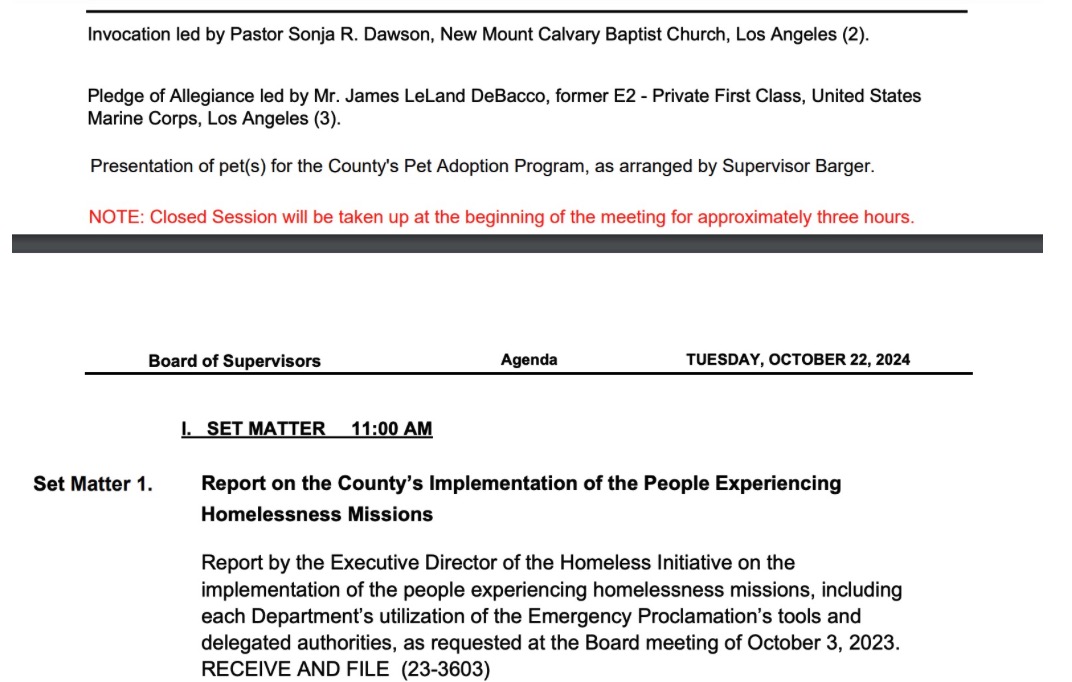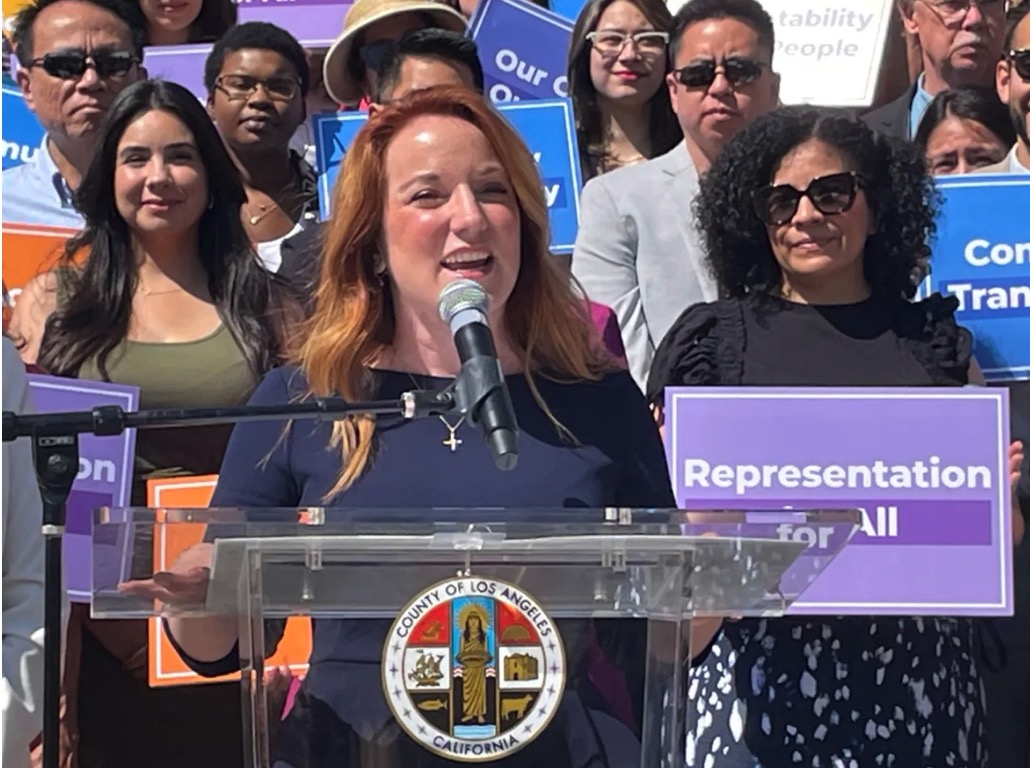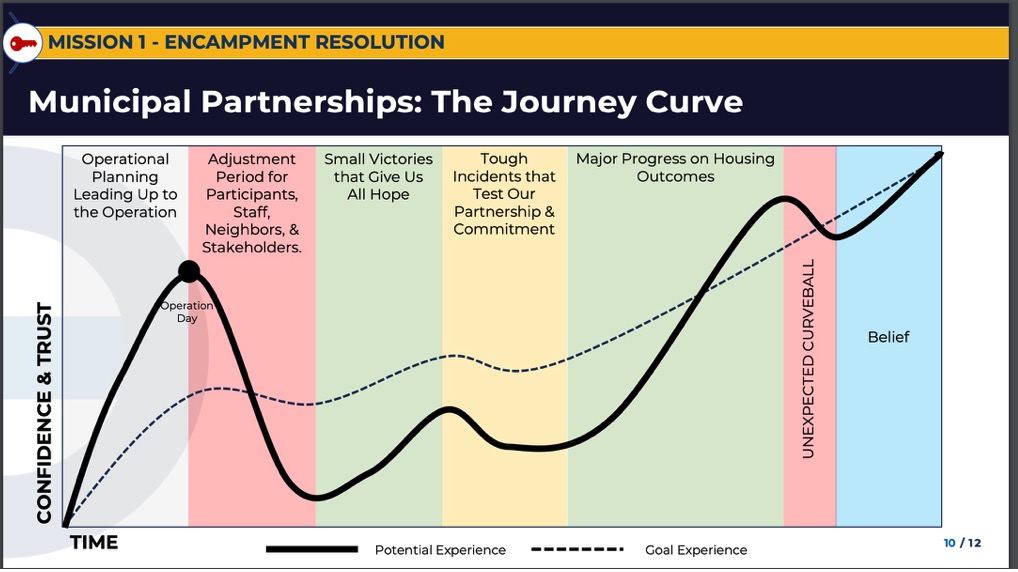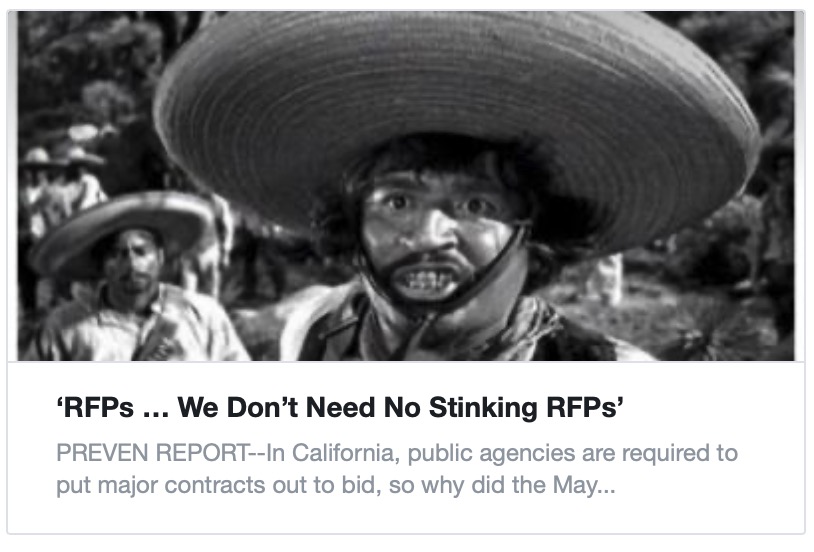Comments
ERIC PREVEN'S NOTEBOOK - I, Lindsey Horvath THEREFORE, MOVE that the Board of Supervisors:
1) Cancel the November 19, 2024, Regular Board Meeting; and 2) Change the November 26, 2024, Policy Presentations and Public Hearing Board Meeting to a Regular Board Meeting.
Smart Speaker: Let the record reflect you also canceled the October 15th board meeting. And as a point of order and transparency, please remember to check the fine print.

Sneaky fine print.
I’ve gotta say, three hours for a closed session? That's a lot of time off the field, especially when we've got a big game—a set matter—waiting at 11:00 a.m. You’ve got the public here, watching, expecting way more from you, expecting to see that transparency you are constantly talking about. But when you spend three hours backstage, what message are you sending?
The public is like, "What’s going on in there? Are we being sidelined? Are the key plays being made where no one can see them?" That's not the kind of leadership we want to show. We need to be efficient, play smart, and keep things open so the public feels like they’re part of the process. Let's step it up ladies!

Chair Lindsey P. Horvath outdoors.
Set Matter One:
A 12 page high-density report with tiny lettering.
Being honest about the 'Journey Curve' as we navigate the highs and lows of the rehousing process is essential for building and maintaining trust. It’s great to be self-reflective about the effectiveness of our efforts, both the good and the bad.
One suggestion is to also create a so-called 'Journey Curve' for an engaged Angeleno who might want to address the Board of Supervisors?

Journey curves...
Next item.
Smart Speaker: Fine, in the midst of all the proclamations—National Food Day on October 24th, ADHD Awareness Month, and Italian American Heritage Month—we note Supervisor Mitchell's so-called caramel cluster meeting item, wedged in there as item number17 on the agenda. It’s sweet, sure, but just like the 80 pounds of sugar your average American consumes every year, we don’t need another teaspoon of suger. We need sweet and sour.
On Tuesday, Oct. 22, the Board will consider a motion to include board motions in 'cluster meetings'—supposedly to increase public input and transparency. The idea is that presenting motions in these meetings will allow for greater engagement from community groups, advocacy organizations, and residents.
Smart Speaker: Nobody goes to cluster meetings, where are they?
The proposed changes would require motions—except for emergencies, crime rewards, and adjournment motions—to be introduced in these 'cluster meetings' for discussion, with revised rules to come back for a vote in 45 days.
Remember in 1984, George Orwell shows how language can distort reality, like when Oceania’s regime announced the "good news" that citizens' weekly chocolate ration would be increased from 30 grams to 20 grams. That’s doublespeak—turning a reduction into a gain. This so-called "transparency" is no different. By controlling the narrative, the Board is reshaping reality, hoping the public buys the illusion without noticing the truth.
The Caramel Cluster meeting "transparency" move is just another form of gaslighting. Accessible earlier? For whom? The cluster meetings where these motions are unveiled aren’t truly accessible to the public. Even the most engaged members of the public end up with just one minute to speak—after enduring a seven-hour cluster—only to hear, "Your time has expired."
As a regular smart speaker, I told the Daily News that these changes are cosmetic, failing to address real transparency issues. I pointed out that agendas are posted too late for the public to comment intelligently on over 100 items up for a vote. I explained that cluster meetings are where staff and department heads get their instructions from supervisors.
"Certainly not what we need. This is more of an opportunity to empower not-for-profit groups by giving them a little more time to showcase their needs. I just don’t see how the public benefits from it."
This idea helps supervisors who’ve been outmaneuvered. They’ll do anything to dismantle what happened.
Thanks to the Daily News for getting so much right. But for the record, even if I wanted to, it’s not possible to speak on every motion. You should correct that, so it doesn’t seem like you’ve never been to a board meeting. No disrespect, obviously, to Rick Orlov, RIP, who played golf with Supervisor Zev Yaroslavsky—which explains his shocking silence when I blew the whistle on American Golf!
Park and Ride (for Free):
I love the Hollywood Bowl Park 'n ride program—odd how there's no mention of the actual provider, though. That would be too transparent, right? It’s gettable information, but no worries, I suppose. And just to be clear, 4 x $7 equals $28. The purpose of this motion is to fund the Hollywood Bowl Park-and-Ride and Shuttle Program for 2024. Patrons benefit from more transportation options, and it reduces traffic congestion—great! But who's behind it. We don’t need to add sugar ....
No deal: Power Squeeze.
I read that the documentary Union, which focuses on unionization efforts at Amazon, faced significant challenges in obtaining traditional distribution. What a surprise. Despite its critical acclaim, the film struggled to secure a distributor willing to take it on, largely due to its subject matter involving Amazon, one of the most powerful corporations in the world.
As a result, the filmmakers decided to self-distribute to reach audiences and share their story about the ongoing struggle for workers' rights and unionization efforts at Amazon warehouses. The documentary highlights the challenges faced by labor activists and the tactics Amazon employs to resist unionization.
Maybe Hugo Soto-Martinez can roll out a series of screenings through the Neighborhood Council's Movies in the Park...
"Copy, Go for Public"
The county has two significant Motorola deals on the table, both related to the use of their Land Mobile Radio (LMR) system, which has been praised for its success during major events like the 2022 Super Bowl and is being prepped for future high-profile events such as the World Cup and the 2028 Olympics.
First, the Sheriff's Department is seeking approval to finalize and execute a User Agreement with the Los Angeles Regional Interoperable Communications System (LA-RICS) for the LMR system, along with a $4,658,000 appropriation adjustment. This agreement allows the Sheriff to make amendments, update rates, and terminate with a 90-day notice.
Second, the Fire District is requesting a similar User Agreement for the LMR system at a rate of $20 per device per month, along with a $1,790,000 reallocation from contingencies. The Fire Chief will have the authority to make amendments, update rates, and terminate with a 90-day notice.
While both agreements come highly recommended by the Chief Information Officer and are positioned to support major upcoming events, the effective monopoly Motorola holds over public safety communications raises concerns about long-term competition and costs. Nice gig if you can get it.
I request that someone, possibly a well-informed member of the public, be given one minute to explain how Motorola has vanquished all competitors who might question the cost structure of this bouquet of public safety contracts. The lack of competition makes it virtually impossible for the County to secure the best possible deal for taxpayers, leaving us locked into contracts without exploring alternatives. A brief discussion on this would shed light on whether we are truly getting the best value for public safety communications.
Sole-sorcery:
First, the sole-source amendment with Runbeck Election Services to extend Voter Information Management System license and support services. Extending the contract at a cost of $1,336,498 until the go-live of the new Election Management System in 2026, with potential future extensions that bring the total to $5,153,898, raises concerns. Sole-source contracts are rarely in the public's best interest, as they eliminate competitive bidding and the opportunity for the County to secure the best value.
Additionally, the acquisition of 240 ZOLL X Series Advanced Cardiac Monitors/Defibrillators appears to be proceeding under a similar sole-source rationale. While it is crucial to provide advanced life-saving equipment, we should also ensure that the procurement process allows for competition and transparency to get the best deal for taxpayers.
I urge the Board to consider whether these sole-source agreements truly serve the public's best interest or if there are better ways to ensure accountability and cost-efficiency in these critical contracts.
Gentrificationisticalidocious:
There is usually just one California Highway Patrol officer patrolling the 70 miles of coastline at a time. That's the least of the problems on US one near Big Sur. The New York Times says the problem is too many tourists.
“It’s like Henry Miller says, ‘Everybody wants to be the last invader,’” said Magnus Toren, the director of the Henry Miller Memorial Library, a bookstore and event space tucked in the redwoods, referring to a line from Miller’s book “Big Sur and the Oranges of Hieronymus Bosch.” “We all want to pull up the drawbridge once we’re on the other side of it.” Word.
Down here, the Frogtown Flea Crawl, a twice-monthly market in L.A.’s Elysian Valley, became a flash point in the debate over gentrification. The event, popular among young, upwardly mobile visitors, faced backlash from the neighborhood’s long-standing Latino community due to issues like increased traffic, blocked driveways, and rising costs that many residents found unaffordable.
Tensions erupted during neighborhood council meetings, leading to a boycott campaign and event founder Analise Anderson pausing the flea crawl.
Residents expressed frustration that the event represented the forces displacing them from their historically working-class community. Anderson's attempts to propose solutions were met with distrust, and accusations arose that she had been dismissive of residents’ concerns.
The flea crawl was ultimately canceled, marking a victory for community members seeking to preserve their neighborhood's character amidst increasing gentrification.
Analysis: Neigborhoods should get a say in how they are defined.
Trust me, bro:
Bro, check this out—there’s this gig for a Compliance Officer, and honestly, it’s gotta be the worst job ever. I mean, total buzzkill. Basically, this poor soul’s gonna be stuck dealing with the Probation Department and all these County departments, trying to fix problems and make sure everyone’s playing nice with the Department of Justice and some other watchdogs. They’re supposed to handle all these crazy communication gaps and make sure everything runs smoothly between the Probation crew and other departments working with the juvenile halls.
But dude, it doesn’t stop there—this job’s all about watching the clock on compliance deadlines, making sure Probation’s paperwork is all good, reviewing endless reports, and keeping everyone in line with these corrective action plans. And get this—they’ve gotta call in all the stakeholders to weigh in on these plans, making sure they meet all the requirements. Plus, the CEO can dump whatever other boring admin work they want on them. It’s like endless paperwork, meetings, and stress. Total nightmare, man. Stay far away from this one, trust me.
First Peoples:
Thank you so much for the inspiring move to honor Native Americans with... one whole day of free access to museums and county beach parking in November. Truly groundbreaking. The three honorees are fantastic: Kenny Ramos, lighting up stages with his creative brilliance; Cynthia Ruiz, leading with distinction and following her mother’s powerful legacy; and Chief Anthony Morales, preserving tradition with grace. But where’s Rudy Ortega Jr.? You know, the guy who helped Harvard-Westlake get their hands on Studio City’s open space? If we’re handing out honors, why not toss him in for his contributions to that 'cause'?
Now, let’s talk about this "one day" of free access. Really? One day for the First Peoples? That’s insulting. And all of the city council members who went along with the creepy plan to make the First Peoples go last at the presentation-palooza last week... sad.
Here’s a much better idea, and we all know it. Instead of approving that one-million-dollar annual structural increase to the Natural History Museum’s budget, written into the fine print of your long-term public-private partnership by attorney mastermind Richard Volpert—why? The museum is already run like a university department, and we all know universities should be the ones paying for tenured professors, not visitors trying to get a look at the buttferfly collection. Sure, museums should have scientists, but that’s not the problem.
The problem is the door charge for regular folks. It's out of step! Kids from South LA, or anywhere frankly, including Native Americans, can’t go to the great county Nat History museum for free. And that should’ve been fixed years ago. The door charge is killing attendance and it's making our kids dumber. If you really want to honor Native Americans, do what the California Science Center, the Broad, and the Hammer have already done—make it free. And while you’re at it, please tell George Lucas and Mellody Hobson we came up with a great ending to the very late but coming soon Museum of Narrative Storytelling in Exposition Park: Make it FREE!
That would actually be worth celebrating.
Metro Wednesday:
Hey, heads up—this Wednesday, the Ad Hoc Olympics Committee is gearing up for a big meeting on getting ready for the 2028 Olympic and Paralympic Games. Here’s the lowdown:
They’re taking notes from Paris 2024, where they threw non-frontline staff into public-facing roles during the games. Metro’s thinking they can do the same for 2028. They’re also planning to boost bus and rail service and make sure the security and transit teams are on the same page—no chaos, just smooth rides.
Paris dropped the ball with security staffing, so Metro’s focusing on training and making sure law enforcement is visible and ready to roll. And when it comes to getting around, Paris’s info was all over the place. Metro’s gonna centralize it, work with app developers, and make sure everything’s clean, clear, and easy to navigate.
They also noticed Paris had great cycling infrastructure but no one used it because of the heat and bad directions. Metro’s planning to fix that with cyclist support, more shade, and better walking conditions.
Oh, and accessibility? Paris made it tough on people with mobility issues. Metro’s aiming to go above and beyond, making sure routes, elevators, and shorter walking distances are dialed in for 2028.
The Board's also approved updates to the transit system for the Games—staffing, costs, the works. They’re even organizing a summit to talk safety, accessibility, and how all this benefits the community long-term.
So, catch the meeting on Wednesday. It’s gonna be solid!
Dodgeriffic:
Meanwhile, KNX broadcasters joke that after clinching, no Dodger will ever have to buy dinner again in L.A.—not corruption, but hilarious, right? Yet it’s definitely corruption when elected officials and their staff don’t pay for drinks unless they run into David Tristan or Heather Holt at Perch.
After my court appearance, which resulted in an 18-page transcript, I excoriated the legal team behind a major fraud, politely, of course. Your Honor, for this reason and many others, I’m launching a lecture series. If nobody is enforcing the rules on documents because the public doesn’t have standing... we need to fix that!
Tuesday with Marqueece:
Smart speaker: Regarding today's City agenda, let’s start with the Mayor's Inside Safe program. The mayor's team claims 67 operations, housing 3,254 people, at a staggering price tag of $1.3 billion. And now, they’re planning to lease 48,000 square feet from LA Metro to store RVs that’ll be impounded—RVs that people are living in as illegal housing. Maybe it’s time for some real transparency and actual solutions, because this mess is only getting worse.
As for the Government Operations Committee report, I have a few thoughts. Replacing single-use visitor stickers at City Hall with reusable, non-sticky badges? That’s a win for reducing waste and making things easier for visitors. I encourage the Security Services Division and General Services to focus on accessibility and ease of use when selecting these badges.
However, the $200,000 allocation from the CD 2 Neighborhood Services Enhancements budget for the Speed Hump and Speed Table Program? There needs to be transparency about how LADOT, in collaboration with CD 2, selects which street segments get these improvements. It’s important the community sees an equitable distribution of these enhancements.
And then there’s the Justice for Renters Act (Proposition 33). Protecting renters while ensuring landlords get a reasonable return is a delicate balance. I hope the city’s position reflects that balance and doesn’t tip the scale in the wrong direction.
Finally, embedding a Workday technical expert in the LAPD’s Payroll Section sounds practical, but what metrics are we using to gauge success here? Let’s make sure there’s accountability and efficiency in how this plays out.
(Eric Preven is a longtime community activist and is a contributor to CityWatch.)










